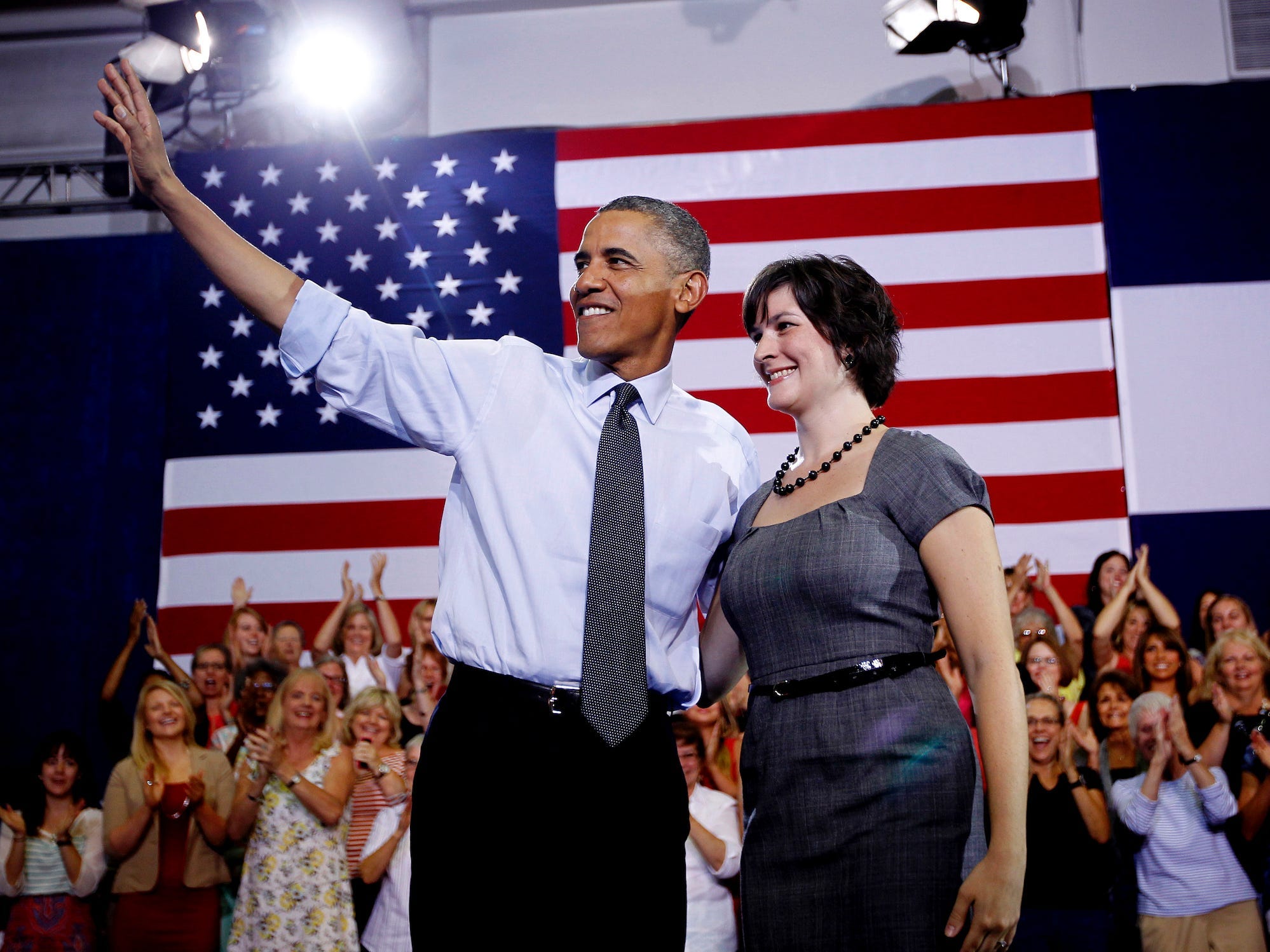
AP
- The former law student Limbaugh smeared nine years ago refuses to let him define her.
- “I am focusing my energies on passing good strong legislation to strengthen our democracy,” Sandra Fluke told Insider.
- “I wasn’t going to be silenced,” she said of the 2012 attacks that changed her career.
- Visit the Business section of Insider for more stories.
When Rush Limbaugh died on Wednesday, plenty of people invoked the name Sandra Fluke on Twitter to dance on the grave of the infamous father of conservative talk radio.
But the former law student whom he publicly attacked nine years ago about birth control refuses to let him define her.
“My immediate thought was honestly to send my sympathies and my condolences to his family,” Fluke, now a Los Angeles-based attorney, told Insider. “But I am focusing my energies on passing good strong legislation to strengthen our democracy so our country can move past the hatred and divisiveness that he sowed and ensure everyone has a voice including those he tried to silence.”
In February 2012, Fluke achieved a milestone in her budding public service career. The Georgetown law student attempted to address a Republican-led House panel on the need for religious colleges to provide birth control without a co-pay. Republicans blocked her from testifying so House Democrats invited her to speak to them.
Fluke’s testimony caught Limbaugh’s attention. On February 29, the shock jock disparaged Fluke as a “sl-t” and a sex worker for demanding better access to contraception. He continued hurling a litany of misogynistic slurs at the law student for another four days.
"So, Ms. Fluke and the rest of you feminazis, here's the deal," Limbaugh said. "If we are going to pay for your contraceptives, and thus pay for you to have sex, we want something for it, and I'll tell you what it is. We want you to post the videos online so we can all watch."
The attention and vociferous backlash made Fluke instantly recognizable and one of the top stories in Washington for a week. President Barack Obama called her privately to express his support. Georgetown University's president, the National Organization for Women, Rachel Maddow, and prominent congressional leaders in both parties all raced to her defense. And Fluke landed on the cover of Ms. Magazine during the maelstrom.
After immense public pressure, Limbaugh released a statement on his website apologizing for his remarks. "My choice of words was not the best, and in the attempt to be humorous, I created a national stir," it read. "I sincerely apologize to Ms. Fluke for the insulting word choices."
Fluke believes Limbaugh's apology was genuine but his multi-day tirade - what she called "terrible attacks" - still shocked her. She experienced harassment online and in real life afterwards and took steps to ensure that she would stay safe, but wouldn't explain what she encountered.
Regardless, she felt it was important that she maintain her composure throughout the episode.
"I wasn't going to be silenced and I wasn't going to be an example to young girls in particular that if you spoke up if this is what happened to you," she said. "I wanted to make sure I was a positive example as opposed to a cautionary tale."
Beyond the backlash, Limbaugh did not face consequences for his sexist remarks. He continued drawing millions of listeners and embraced conservative control of the federal government with his friend Donald Trump in the White House. When Trump awarded Limbaugh the Congressional Medal of Honor at his State of the Union address a year ago, Fluke was not surprised.
"I felt that it diminished those who had received it in the past, and it was given by a president who had long diminished his office as well," she said.

Pablo Martinez Monsivais / AP
The publicity changed her career
The experience in the spotlight permanently altered her career. She had planned on representing clients affected by domestic violence and immigration-related legal matters, but her newfound fame gave her a platform to advocate for reproductive health care in the Affordable Care Act and support political candidates across the country. Later in 2012, she served as a surrogate for President Obama's re-election campaign and stumped for Democratic candidates in multiple states.
Two years later, the attorney ran for California State Senate but lost in a November runoff election. However, she would not rule out another bid to serve her community in the future.
"I was excited about the opportunities to put legislation forward in California," she said. "It would depend on the opportunity and the timing. I would be honored to have that kind of opportunity to represent my community."
These days Fluke is focused on advocating for economic and social justice, climate change, police reform, and strengthening democracy as executive director of the nonprofit advocacy group Voices for Progress. She still takes on immigration cases as a pro bono attorney in California, too.
Fluke recognizes how hard it was to navigate being the subject of a voracious news cycle, even before the #MeToo era occurred. She hopes that others who experience that attention can lean on their network of friends and loved ones to get through it.
"Experiencing sexual harassment directly is an incredibly hard thing to cope with and overcome," she said. "I have to say I think I was lucky to have the support of so many individuals and not navigate and endure that experience alone."